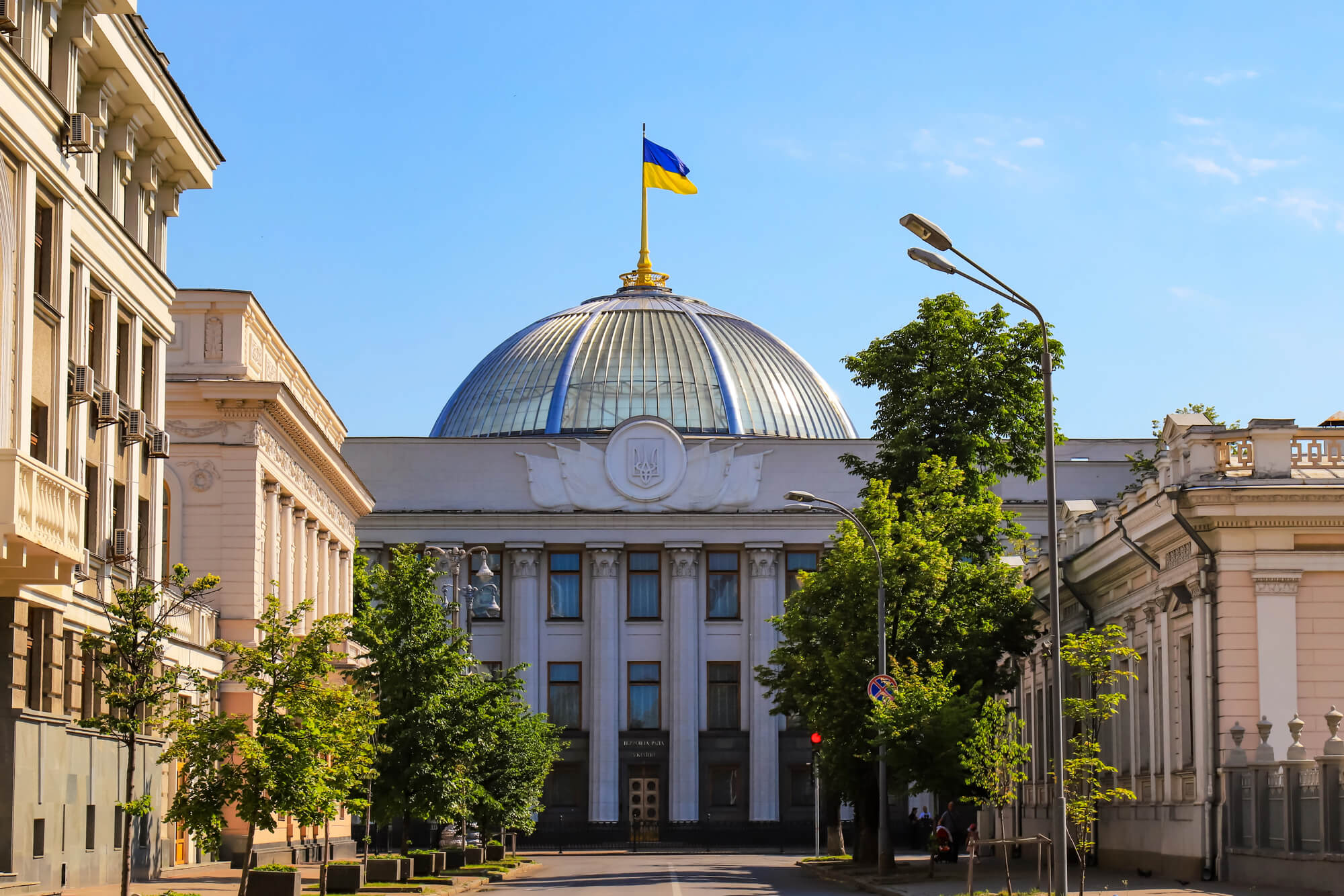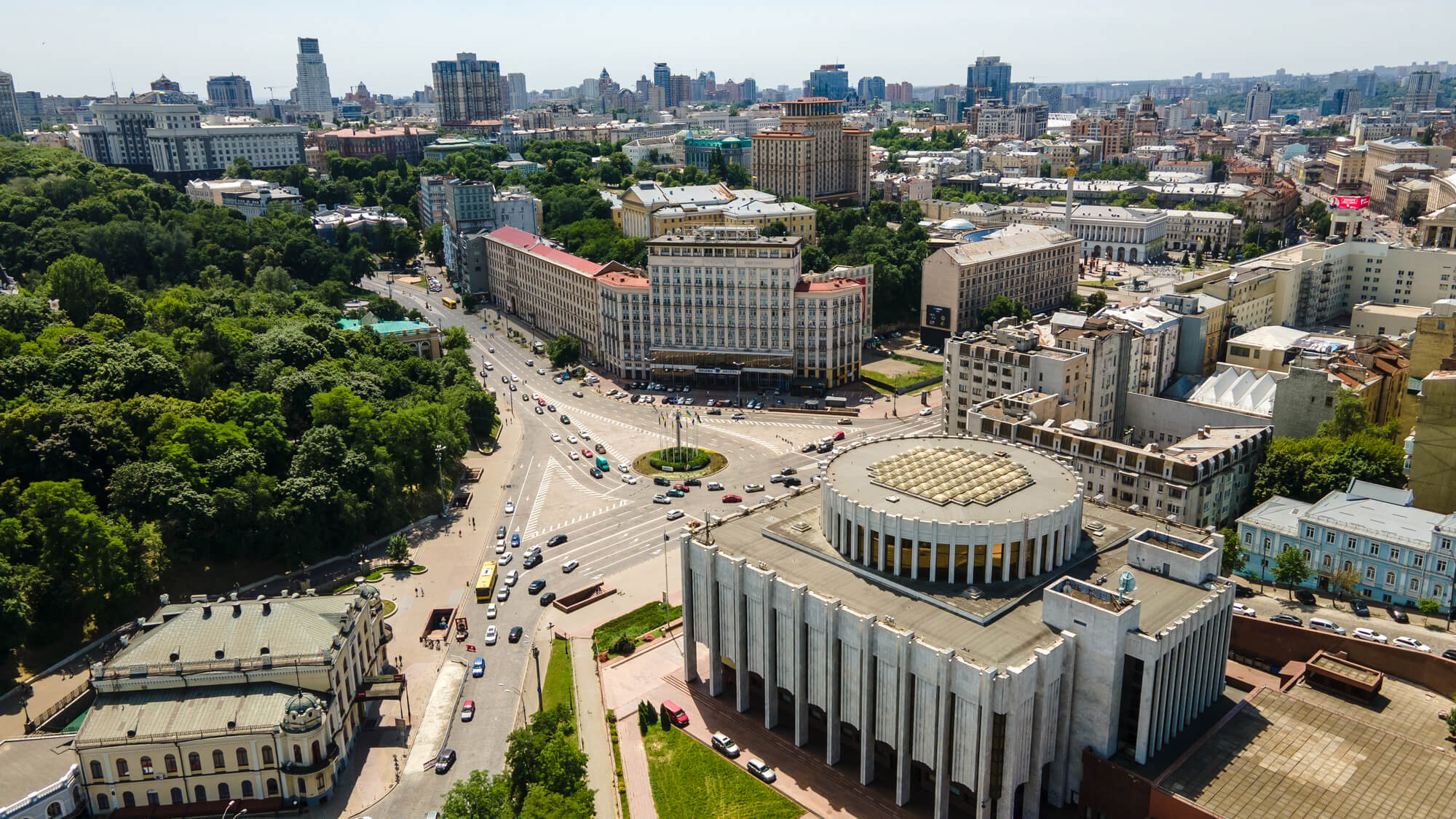Decentralization of power, lustration of public officials, and necessity of reform implementation are the areas that experts identify as the most urgent challenges that Ukraine is facing. Responsibility and trust are the main resources necessary for future changes. But, in fact, there is another problem. Following the nature of power relations, the problem is that “responsibility” remains only a word in a pre-election speech. In a similar spirit, trust is not used for building statehood; instead trust is used for speculations to satisfy the interests of business industrial groups.
It was been like that in the days of Kravchuk, Kuchma, Yushchenko. And in this context the presidency of Viktor Yanukovych turned out to be a painful, but logical outcome of a long degradation of state institutions. Yanukovych’s strong desire to capture maximum resources (financial and power) not only devastated state finances and deepened economical problems but it provoked a paradox, which Alexis de Tocqueville mentioned in his treatise The Old Regime and French Revolution: Too much power concentrated in one hands creates a deficit of power in the country. The number of people dissatisfied with their living conditions and excluded from decision making is growing. As a result, every act of tyranny and every empty promise exhaust the remnants of confidence in the regime reinforcing an invisible crisis of legitimacy.
Maidan became a logical epilogue of Yanukovych’s presidency. However, the system built to serve the interests of “one family” did not disappear with its former owner. It continues to function behind “the facade of atomized and outdated public institutions”. None of the MPs’ daft laws or official’s initiatives will break this machine. Moreover, because of its flexible structure and self-preservation, all key initiatives and reforms will remain only formal manifests. Basically the Ukrainian state “after Yanukovych’s regime” is unable for constructive activities. Its priority is neither military conflict resolution, nor reforms, nor modernization. Its only concern is to preserve and manage the corrupt system with its players: political elites and statesmen.
Ukraine has always been a Leviathan State. Ukraine is a state that is unable to provide any “guaranty” for its own people. In peacetime the inability to guarantee anything costs only money for citizens (embezzlement or theft of public funds, poor quality of public services, etc.), but in an armed conflict the cost is much higher: human lives.
The situation with Ukrainians living in Donetsk and Luhansk demonstrates the point clearly. Chaos and lawlessness in the East became large-scale not only due to the actions of separatist hatchet men. Poor media coverage of the development contributed to the strengthened false stereotypes about residents of Donbas “who asked Putin for help and now want our help” among those who live in western and central regions of Ukraine. We should understand that from the early beginning of hostilities official Kyiv was choosing between inaction (disguised as humanism or unwillingness to harm civilians) and (later when the first phase of the intervention has been completed and DNR military bands entrenched in several cities) televised reports about “liberating block posts”. Virtual victories and news about installing “yellow/blue flags” on city halls taken back from separatists became Kyiv’s military “strategy” and a key informational foundation for the presidential and parliamentary election campaigns. Moreover, it was clear that a “bright picture on TV” became more important for the country than its own population.
Further steps with freezing social benefits, displacement of schools, banks and administrative offices outside the occupied territory only confirmed this unpleasant observation. Most of these steps were explained by the Government and National Bank as necessary policies determined in response to the actions of armed separatists. This decision may seem correct as for most Ukrainians Donbas turned into a “black box” with a nontransparent but very dangerous content. The deficit of objective information does not allow an average taxpayer to perceive the following characteristic “trivial points” in the actions of the government.
First, even when using the word “evacuation”, the state does not provide real evacuation corridors for the workers of public institutions and their families. Instead, the government offers people rather bizarre prospects of forced migrants. Those who watch the news think that more than enough is done for such people, but in fact the state only keeps appearance of these institutions and a certain percentage of the bureaucratic elite while most of the workers do not have any financial or even physical possibility to leave the conflict zone.
Second, by halting the work of public institutions in the conflict zone, the state actually rejects its own citizens. There are no humanitarian posts, emergency services or any other targeted support for Ukrainians living on the territories of DNR and LNR. “Pro-Ukrainian” population of Donbas, under constant pressure from Russia, perceives such indifference as a betrayal and it causes frustration and daily apathy for public life participation. For many elderly and sick people such policies may be equivalent to a death sentence.
Finally, by eliminating the last elements of public infrastructure, Ukraine frees space for the institutions of DNR and LNR. The Ukrainian state gives these unrecognized republics a possibility to be finally formed into “states”. With Russian support, this is a very real possibility.
Clearly, the strategy of the Ukrainian government is irrational. It does not lead to a resolution of the conflict. Instead, it leads to preservation or further escalation of the problem. To avoid accusations of bias, let me remind you about other similar situations: annexation of Crimea, poor supply of the army, a high number of soldiers killed as a result of negligent actions of command.
In each of these cases, there is no personal responsibility of officials to the public. In response to every problem, the government and the parliament react with a legal act that gives an illusion of control. The promises and guarantees that nobody is going to keep are the main products of the government today. This inadequate behavior is the best demonstration of «modus operandi» of the Ukrainian state: it is a system operating separately from the needs of its own people.
The state does not relieve people from stress. If anything, it does the opposite. And it makes sense because the constant sense of insecurity, tension and fear takes over agenda and nobody wants to discuss government inefficiency. War, crisis, terrorism and insidious enemies can distract the attention of constructive forces of the Ukrainian society. Activists and volunteers who appeared spontaneously as a result of the Maidan events threaten the state system and they must be diverted.
Regular folks have no place in the value system of the Ukrainian state. This is even more so for active independent citizens who own some social capital as such individuals are real enemies of institutions and politicians in power. That is why the government tries somehow “to flirt” with Maidan symbols, speculates on patriotic feelings, and tries to provoke and increase people’s tiredness towards the politics in order to protect itself from a new wave of protests.
Is this “fog of war” going to work and nothing is going to change in the Ukrainian state? While studying the experience of transitional societies in 1950s and 1960s, Samuel P. Huntington concluded that at a time when large social groups are mobilized for participation in politics, one may expect violence that public institutions can’t control or stop. It seems that Russia expects such an outbreak of violence in Ukraine to complete its intervention.
This is a pessimistic scenario but it has all chances to become real. What can be done to prevent this bad scenario?
- The state does not have ability to implement expected reforms. Therefore, new faces in politics must take responsibility and press on public authorities to accelerate institutional changes and implementation of personal responsibility of high rank officials for serious errors in any area of national interests;
- Volunteer and activist organizations should work towards creating a broad network of civic associations, which will be able to involve experts from all over the country to address the most urgent tasks and, if necessary, to mobilize local communities;
- The state should form and strengthen contacts with the residents of occupied territories, not only informing them about the situation, but also supporting them during military operations. It is difficult, but we have to do so if we do not want to lose Donbas once and for all. Today’s military crisis is not so much about border lies on topographic maps. It is about border lines in people’s minds.
Ukraine still has a chance to overcome challenges and become a powerful state. Unfortunately, we cannot expect “reforms from above” and wise leadership. Therefore, emergent civil society (activists, volunteers, etc.) should be a key driver of the state’s modernization and transformation and resists reaction of financial and industrial groups.
Attention
The author doesn`t work for, consult to, own shares in or receive funding from any company or organization that would benefit from this article, and have no relevant affiliations


